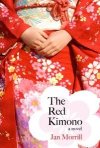I missed Advent Calendar Day 8. So much for my perfect streak. (Though, I also missed Day 1. Haha! But in an effort to maintain a semblance of perfection, I played “catchup” on Day 2.)
Today, however, in my decision to cast aside the illusion of perfection, I’ve decided to go ahead and skip Day 8, which leads me to this post on wabi-sabi, a Japanese philosophy of finding beauty in imperfection.
Here are a couple of other posts I’ve written in the past on this philosophy:
Welcome to This Wabi Sabi World, Penelope
Today, I’d like to share a story about the wabi sabi of Nagging. Yes, I’ve even found beauty in nagging. I wrote this a couple of years ago, while reminiscing about my mom during the holidays.
I hope the philosophy helps you to find beauty in all the hustle and bustle, the overscheduling, the wrapping and wrapping and wrapping, the after-holiday cleanups, etc., etc., etc.!
Wabi Sabi Nagging
My mother was a perfectionist. It’s how I became a perfectionist. Whether it’s a gene I inherited or the way I was raised, perfectionism runs through my blood. But “perfect” is not an absolute. It’s in the eye of the beholder—everyone’s version of “perfect”—of what’s acceptable—is different. This is perfection’s hidden wart.
And so, my mother and I often knocked heads about our differing versions.
At no time was this disagreement more evident than during the holiday season. My mother demanded a perfect meal, with foods to please every attendee. She ordered a perfectly set table with hand-washed china framed by fragile, sparkling crystal and hand polished sterling silverware.
As a teenager, my idea of a perfect holiday meal was paper plates and napkins, a buffet, time to watch TV and enjoy the company of family and friends.
I’d whine, “Mom, can’t we use paper plates so we can just relax after dinner? Nobody will care.”
“I care,” she’d reply.
It was the only reply necessary.
Besides, my whining about my idea of perfection could not compete with her nagging about it.
“Janice! Did you string the celery before you started chopping? And you need to chop those pieces smaller.”
“Honey, keep stirring or it’ll get lumpy.”
“No, Janice. The knife goes on the other side.”
But the complaint I remember to this day arrived as I helped her with an hors d’oeuvre tray filled with halved cherry tomatoes stuffed with a cream cheese mixture. The pièce de résistance was the topping of five tiny black Beluga caviar eggs. Not three teeny-tiny black eggs. Not four, and certainly not a little pile plopped in the center, but five, placed precisely in the center of the cream cheese.
I clearly remember her harping about my lackadaisical approach to this bite-sized morsel, and I clearly remember, too, my Teenage-Girl Eyeroll Style #24—the protest eyeroll—though performed with my head turned so my mom wouldn’t see it.
This holiday season will be my fifth without my mom. Though I deeply missed my mother the first holiday we spent without her, I must admit, I didn’t miss the hullaballoo and stress of her “perfect” holiday. Admittedly, I used paper plates that first holiday.
True, I enjoyed sitting with everyone, reminiscing about memories, joking and laughing fondly about my mother and her holidays—about the beautiful tables she set, her overly ornate Christmas trees, her stairway trimmed with sparkly lights and greenery.
But sometimes jokes and laughter are guardians to protect us from our tears, and though I sensed this truth in that the first holiday I spent without her, the weight of it didn’t hit me until the celebrations that would follow.
Looking back on the years since that first holiday without my mom, I realize that each holiday, I’ve added something that my mother would have done, whether it’s using China instead of paper plates, or stringing my celery before chopping.
There’s nobody to roll my eyes at anymore. Instead, I imagine my mom smiling from above that her stubborn daughter finally learned the lessons she tried to teach me.
My holiday “presentations” have become more like my mother’s. Nothing was more evident as I ironed my tablecloths and napkins this past Thanksgiving. Still, I am different from my mother, because my holiday presentations are far from perfect and I don’t think anybody cares.
She did her best to make the holidays perfect for all of us, sometimes trying so hard she was too sick to join us for the celebration, an absence which certainly contributed to the holiday’s imperfection.
Sometimes my mom’s nagging got in the way of what I considered perfection. But as I try to make the holidays special (not perfect) for those I love, the beauty of my mom’s nagging lies in my realization of how much she loved us. And the memory of her “nagging” reminders are a voice that continues to live inside me. I’d give anything to hear her once again say, “Janice!”







